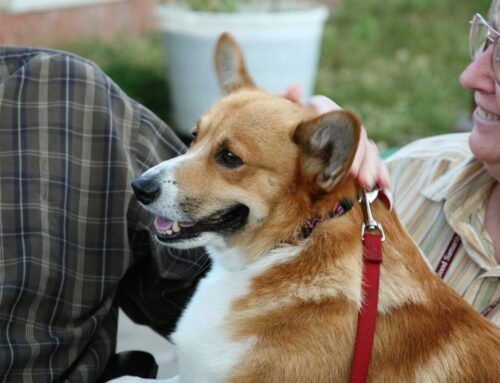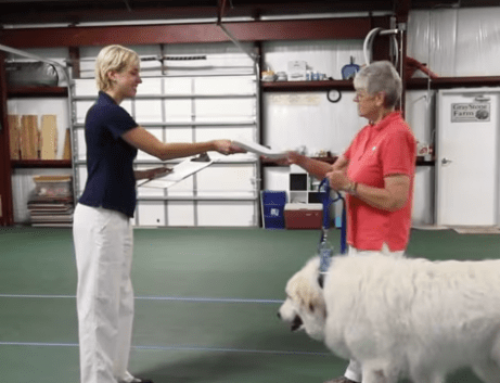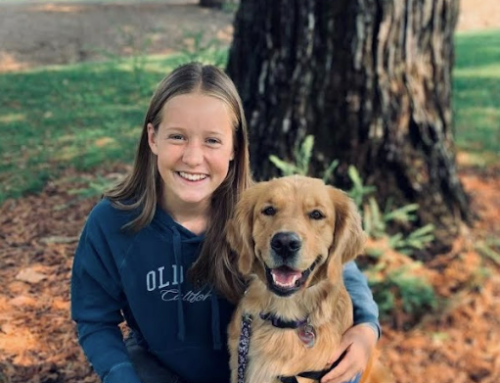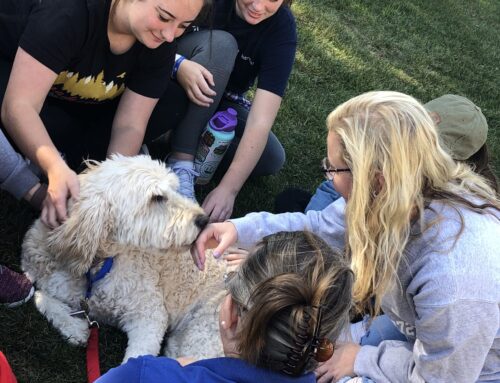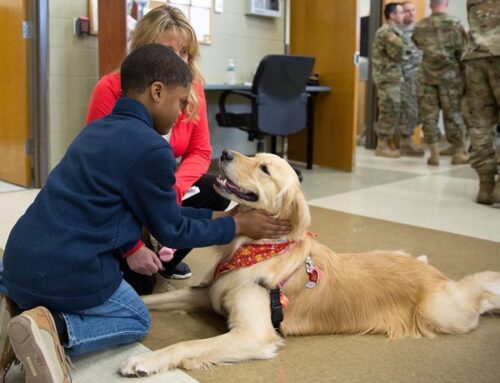It is never easy to deliver bad news. As ATD Members, it’s complicated by the fact that we are all volunteers, and we, at the heart of it all, just want to do nice things for people.
But sometimes we encounter a team, or a potential team, who is not the best fit for Alliance of Therapy Dogs. Telling them what we are seeing is daunting at best, terrifying at worst! How will they respond to what we have to say? Will they be upset? Will they retaliate? All very valid and important questions to ask yourself prior to having a difficult discussion with someone.
As an ATD Member, if you see something happening that is against our rules or if you see a handler or dog looking uncomfortable, approach the team with kindness and compassion. They may not know they are breaking an ATD rule or that their dog looks stressed! Consider thanking them for their volunteer service first and then address the issue you have observed. Try to share exactly what you have seen and why you are talking with them about it. Be aware that you may be surprising them with what you are saying and that may spark them being defensive – that’s okay. If you continue to be calm and compassionate, they may recover from their surprise more quickly and be more able to hear what you have to share with them. Ending the conversation on a positive leaves both you and the other handler in a good place and thinking well of what has just happened.
If the handler stays defensive and/or becomes belligerent, leave the situation, and let the ATD Main Office know about your interaction. The Office is there to support all ATD Members and will do what they can to help remedy the situation.
For a Tester/Observers (T/O) testing a potential team:
- Is it an issue that may improve with time and/or training?
- If this is the case, consider requiring a 4th observation and let the handler know where you would like to see improvement.
- If it’s a more complex behavior issue, suggest additional training and leave the “door” open for the team to return at a later time for their Handling Assessment and/or Observations.
- Is the safety of those we visit or the team at risk?
- End the Handling Assessment and/or Observation immediately.
- Be honest and kind about what you have observed. We all think we have the best dogs (and none of us are wrong)! What’s happening could be the result of many things.
- Discuss calmly the options the potential team has moving forward.
- Additional training and/or experience
- Pursuing other options for their dog – not every dog wants to be a therapy dog.
- Does the handler seem open to suggestions and coaching?
- Offer support.
- If you have them, share resources for them to consider.
Negative news is rarely easy. But, delivered appropriately, can be a huge learning experience! If you have questions about approaching a team or as a T/O, please reach out to the ATD Office for guidance.
Author: Laurie Schlossnagle


